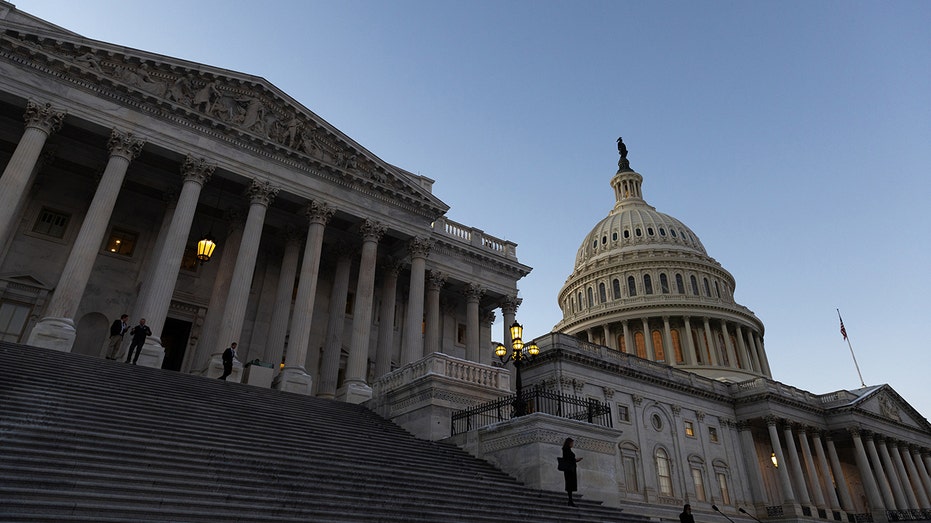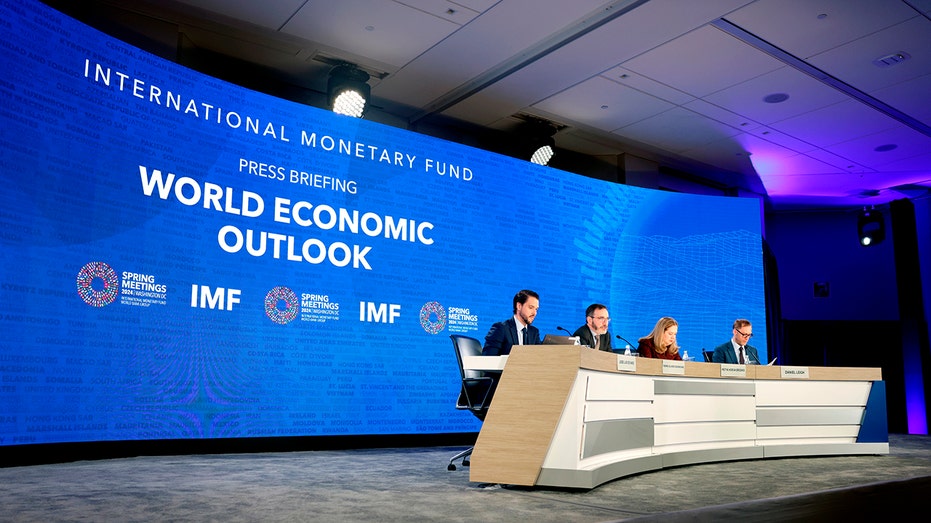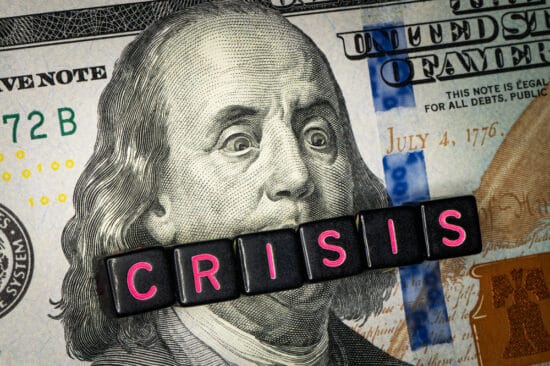
Fiscal Time Bomb: IMF Warns U.S. Debt Could Trigger Global Crisis
The astronomical rise in the U.S. national debt poses "significant risks" to the global economy and threatens to continue fueling high inflation, according to a new warning from the International Monetary Fund.
In its latest Fiscal Monitor, the Washington-based institution said that it expects the U.S. to record a fiscal deficit of 7.1% in 2025 – more than triple the level in other advanced economies.
"Loose fiscal policy in the United States exerts upward pressure on global interest rates and the dollar," Vitor Gaspar, director of the IMF’s fiscal affairs department, told reporters. "It pushes up funding costs in the rest of the world, thereby exacerbating existing fragilities and risks."

The Capitol Building in Washington, DC, US, on Wednesday, Jan. 17, 2024. (Photographer: Julia Nikhinson/Bloomberg via Getty Images / Getty Images)
Under current policies, public debt in the U.S. is projected to nearly double by 2053. The IMF identified "large fiscal slippages" in the U.S. in 2023, with government spending surpassing revenue by 8.8% of GDP – a 4.1% increase from the previous year, despite strong economic growth.
If this trend continues, the Congressional Budget Office anticipates the national debt will grow to an astonishing $54 trillion in the next decade. Higher interest rates are also compounding the pain of higher debt.
Should that debt materialize, it could risk America's economic standing in the world.
The U.S. is one of four countries that needs to critically address "fundamental imbalances between spending and revenue." The other three are China, Italy and the United Kingdom.

IMF officials participate in a news conference at the annual meetings of the International Monetary Fund and World Bank in Washington, D.C., on April 16, 2024. (Photographer: Samuel Corum/Bloomberg via Getty Images / Getty Images)
The U.S. national debt topped $34 trillion in January after a burst of spending by President Biden and Democratic lawmakers and is well on its way to surpassing $35 trillion.
But the massive amount of spending – though it has helped to propel the economy – also risks reigniting inflation and undermining financial stability worldwide by increasing global funding costs, according to the IMF.
"It raises short-term risks to the disinflation process, as well as longer-term fiscal and financial stability risks for the global economy," IMF chief economist Pierre-Olivier Gourinchas said Tuesday. "Something will have to give."
This article originally appeared on Fox Business
sign up for the newsletter
By signing up, you agree to our Privacy Policy and Terms of Use, and agree to receive content that may sometimes include advertisements. You may opt out at any time.












